 Caixabank (Go to Home)
Caixabank (Go to Home)You're not an addict for life

Photo of former soccer player and founder of the Relife Foundation, Julio Alberto Moreno.

Photo of former soccer player and founder of the Relife Foundation, Julio Alberto Moreno.
- Julio Alberto Moreno is touring through ten provinces with the Circuito Relife, promoted by CaixaBank and Fundación Relife, to "train, educate and prevent" young people from traditional addictions and new ones
“You're not an addict for life”. The phrase is signed by Julio Alberto Moreno and is a statement of intentions. It is a reflection of the man who, with a double name and surname, in the past, as a football player for Barça, wrote a golden page of the football history in the 80s, with many lights and, also, with several shadows, recognised with courage.
But it is also a phrase that catches up with Julio, the person behind the character. The person who has been vindicating second chances for three decades based on hard work and "hands that hold on tight", that has allowed him to build a present that he qualifies as "the best moment" of his life..., above the fame and of any sporting achievements.
And, above all, it is signed by the person who looks to the future with a clear objective: "Training, educating and preventing" young people from the usual addictions, which he has overcome, and against new addictions, screens that introduce young people to social networks, online betting, video games or pornography. He is convinced that today's society is "much more complex" and we must act "now".
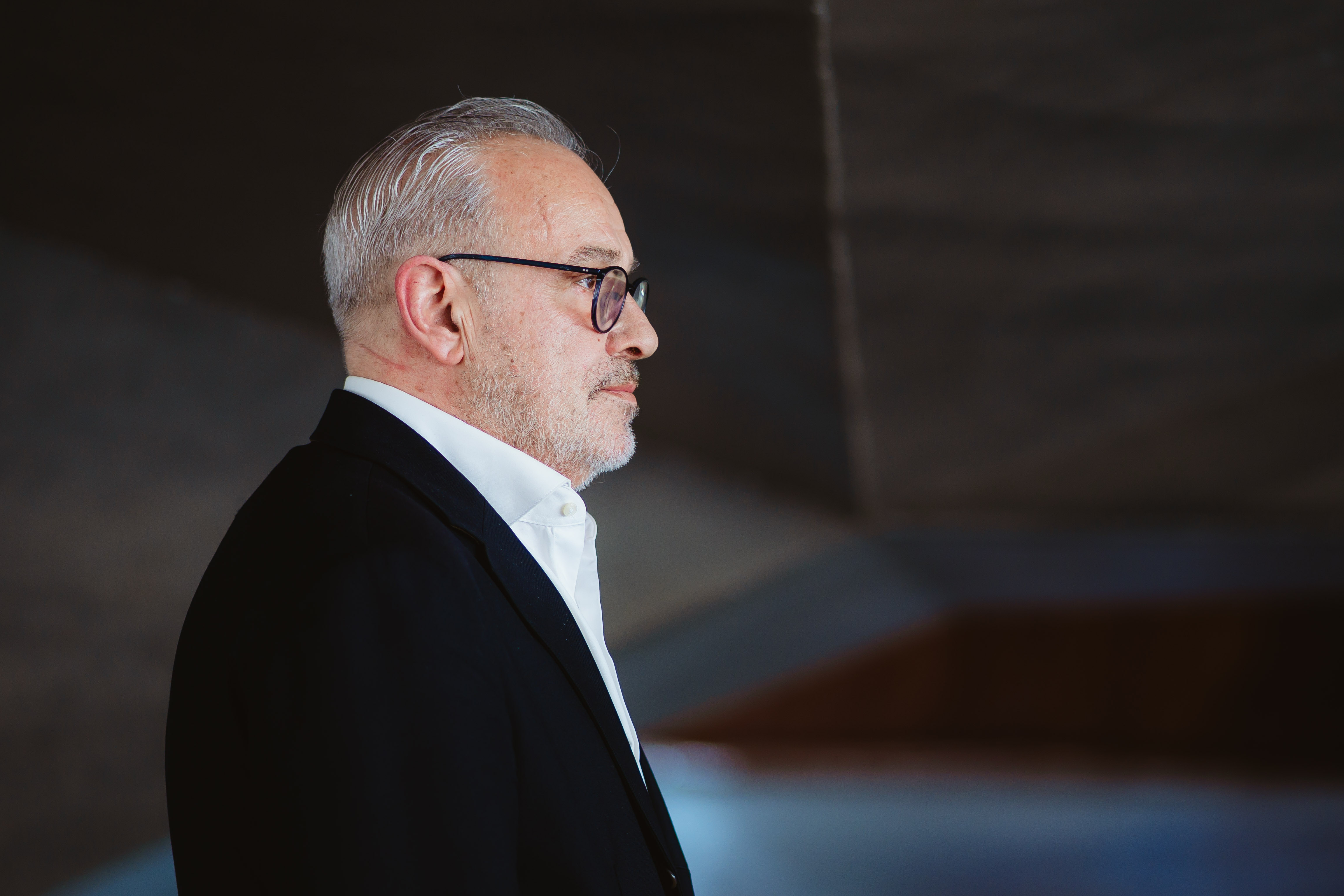
Schools need a subject on social skills and healthy habits
Julio argues that "when you get out of an addiction, you get out". Firstly, because it is a disease and "there are tumors that can be overcome and cured". But also because he believes that thinking about addiction "forever" hurts those people who fight tooth and nail to leave the past behind and to say otherwise "marks" them for life. He hates "labels", although he knows a lot about them and, much to his regret, he still carries some for "mistakes" that he overcame half a lifetime ago. "You've had a problem; you've got out of it and that’s it. You start a new life and become a different person", he claims.
Since the beginning of 2023, Julio has been at the head of the Relife Foundation, an idea that emerged in a conversation on a terrace seven years ago and to which "the right people", experts in the world of addictions, and CaixaBank, who he considers his "faithful partner" were added.
This academic year has seen the launch of Circuito Relife, which is touring through ten provincial capitals to "help young people not fall into addictions and to train them so that they know how to make the right decisions and so that they have those social skills that are determining today". "Everybody is curious, they have to answer themselves how to build the desire, but our intention is to remove the young people a little bit from the inside so that they can grow and grow well", concludes Julio.
At the conference, with "the language that young people have and that reaches them", they speak openly about the usual drugs, "that are more present today than ever in society" and, also, about screens, "to which minors dedicate between 4 and 8 hours a day", with all that this entails in relation to identity theft, bullying, pornography... and a shocking derivative that shows that the highest suicide rate in Spain is among those under 25. "Marijuana, alcohol and the screen are the main risks for 13 or 14 year olds. This is Disneyland for them".
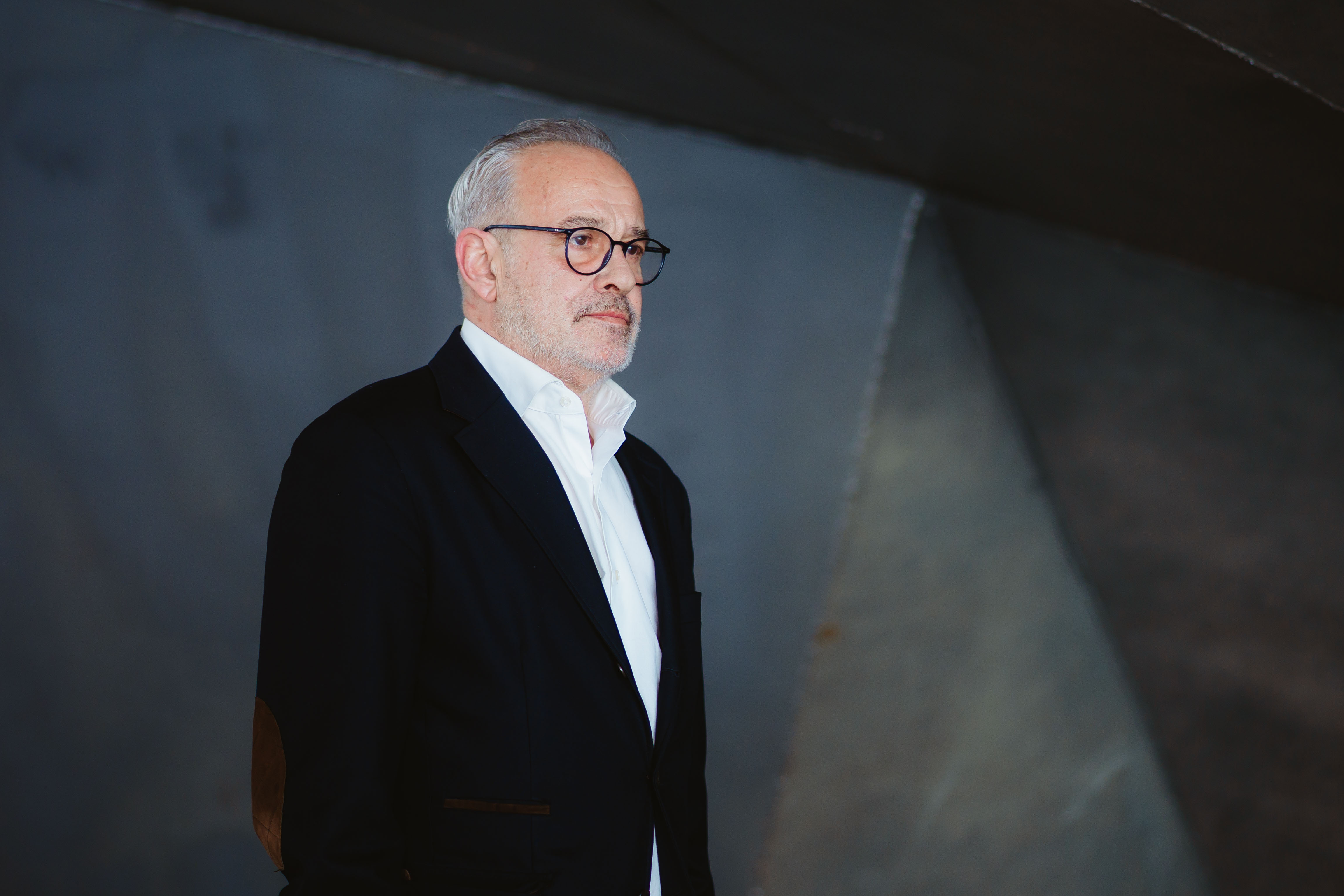
We teach Plato or Mathematics, but we have to teach them what happens when you leave school or on the other side of a screen. If not, they will fall into the first trap
Julio is clear that, when he was a child, in the 60s, they were dealing with "need". "Now young people are dealing with abundance, new technologies and many other things that have nothing to do with the needs of the past".
Hence, its main request: "Schools need a subject of social skills and healthy habits. We teach Plato, Einstein, Mathematics or Geography, but we must teach them what happens when you leave school, when you leave home or when you are on the other side of a screen. We must teach other things that are not studied nowadays because, otherwise, they will fall into the first trap.
This is his aim and a matter pending for the European Union, the Government and, also, the regional executives. Fundación Relife is already working with some of them because, says Julio, "we are at a very important moment, in a struggle to educate and prevent, because new technologies are advancing at a tremendous speed and we need rules and limits".
In parallel, Julio does not disdain the fact that education is not only forged in the school or high school. Sometimes parents also need to be examined in terms of their habits. "The first point of reference are the parents. They are the cornerstone, and their influence is brutal. If you want to educate your 14-year-old child well, you can't come home to watch the Barça-Madrid match and drink five beers and then tell him not to drink, or smoke and tell him not smoke. With what you see at home, you grow and learn".
During the days of the Circuito Relife, 3,500 young people from Zaragoza, Tarragona, Sevilla, Barcelona, Valladolid, Madrid, Palma, Lleida, Tenerife and Toledo discover Julio Alberto Moreno. They are sure to marvel at the goals he scored with Vicente Calderon’s and Luis Aragonés’ Atlético de Madrid, with the Spanish national team or with Diego Armando Maradona’s Barça. For his parents and teachers, the character needed no introduction. Surely they already admired the footballer. But everyone, equally, is moved by the story of the person, of Julio.
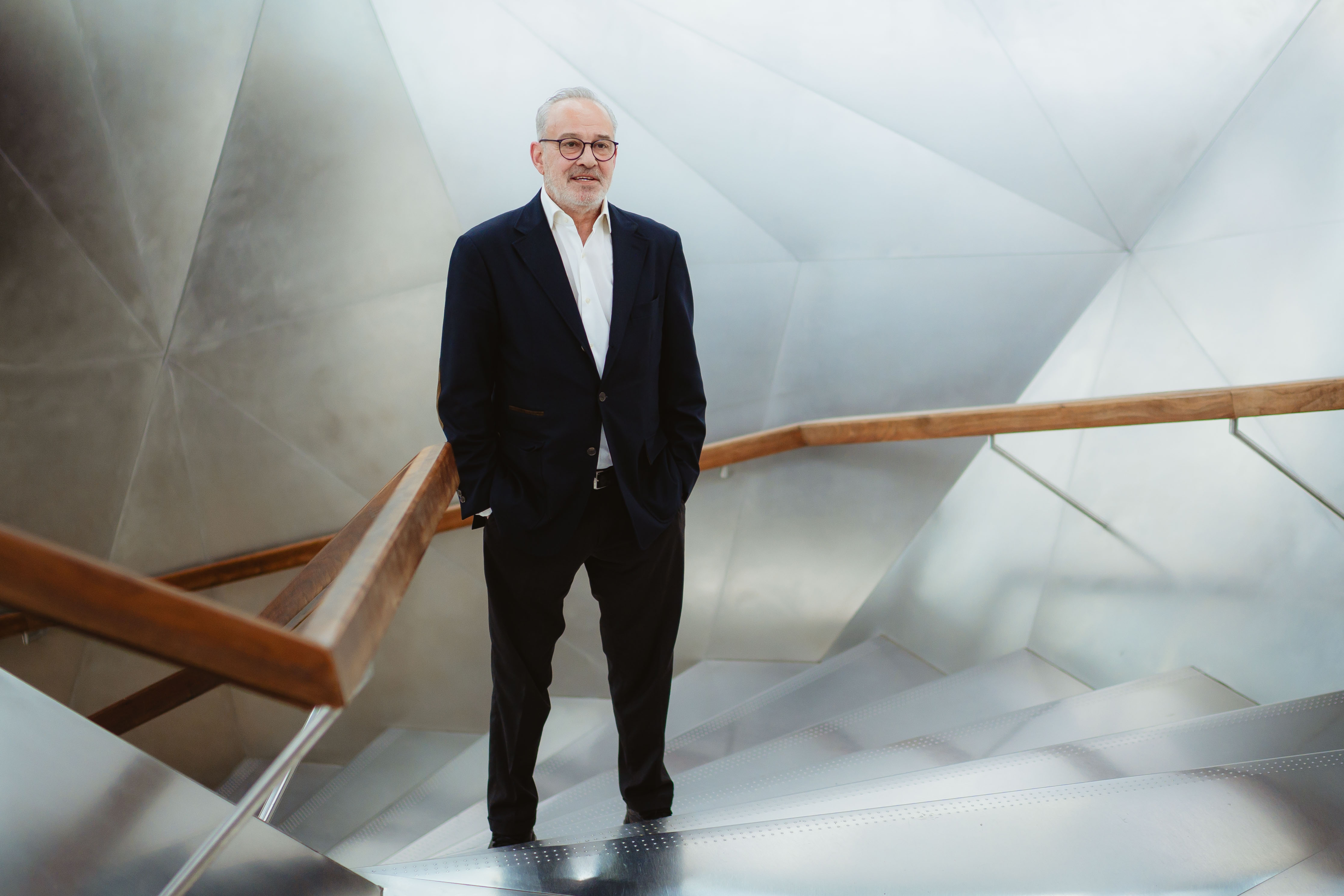
We are at a very important moment in the fight to educate and prevent, because new technologies are advancing at tremendous speed and we need rules and limits
"The greatest learning is life. Sometimes with a lot of sadness, sometimes with a lot of joy, sometimes with pain". And its story has a lot of everything. When he opens up on stage, she discovers the child who, at the age of six, was separated from his parents and younger siblings because of an abusive home environment. The brilliant orphanage student who, after seven years of discipline, was rewarded with a summer camp in which the director abused him.
They also discover that the son returned to his father's house in Asturias, but that he ended up "robbing 900 pesetas" from his bar to run away to find his mother and siblings in Madrid. The older brother that played other sports, but, in the capital, started kicking a ball at the age of 14 to try earn a living and ended up being signed by Atlético de Madrid. To the canterano who had to justify before his mother that he had not stolen his first salary with which he bought "a pair of pyjamas and a dressing gown", filled the fridge and allowed his family to leave the boarding house in which they lived and turn their first house in a home... Then, needs left behind, came sporting success, fame and, later, addiction.
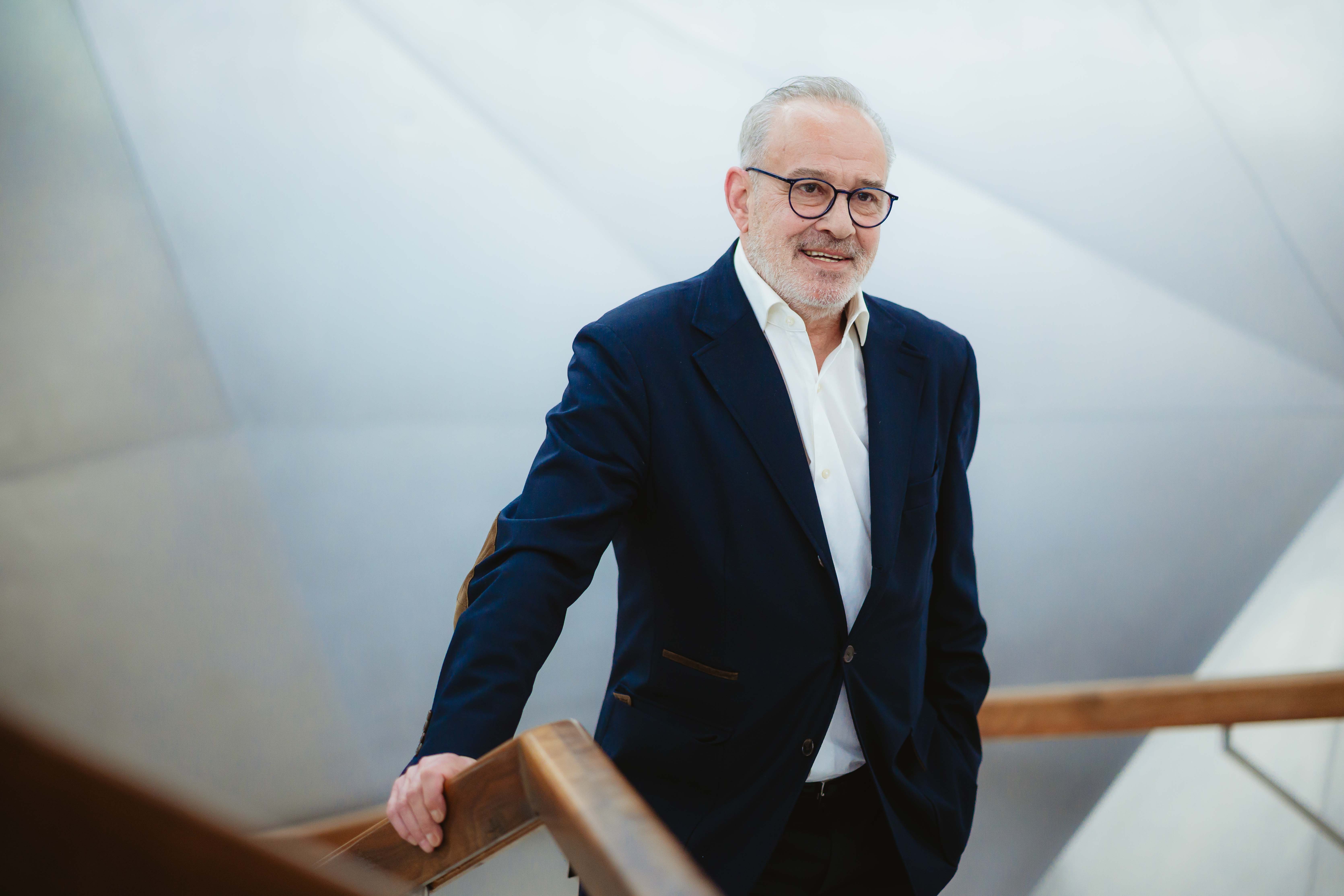
There's always a door you can go through to help that person
Before an auditorium full of young people, Julio warns, without filters, that "in every family in Spain we have someone we know who has had a problem with addictions" and regrets that addictions "can destroy an entire family". But Julio is also convinced that "company" can help someone who is falling or has fallen into an addiction. He admits that it is "complicated” because there are times when "you don't believe in anyone" and you can end up "not believe in life". But his generosity in helping others has led him to affirm that "there are always doors open" and "there's always one through which you can sneak in to help that person to turn their life around and let them help you. There is always a weak spot, the partner, children, parents, friends or work...".
Then comes the time to "speak the truth, to tell it like it is, because this is not a game and it is difficult to get out. Sometimes it requires difficult treatments or even income", he explains. "At that point, when they recognise it, everyone knows what the situation is, where they have come from, what they have done and the damage they have caused. And that's when they make decisions". He adds: "Almost all battles are won when decisions are made, because it is when you take that step forward that you start living. And you come back to life".
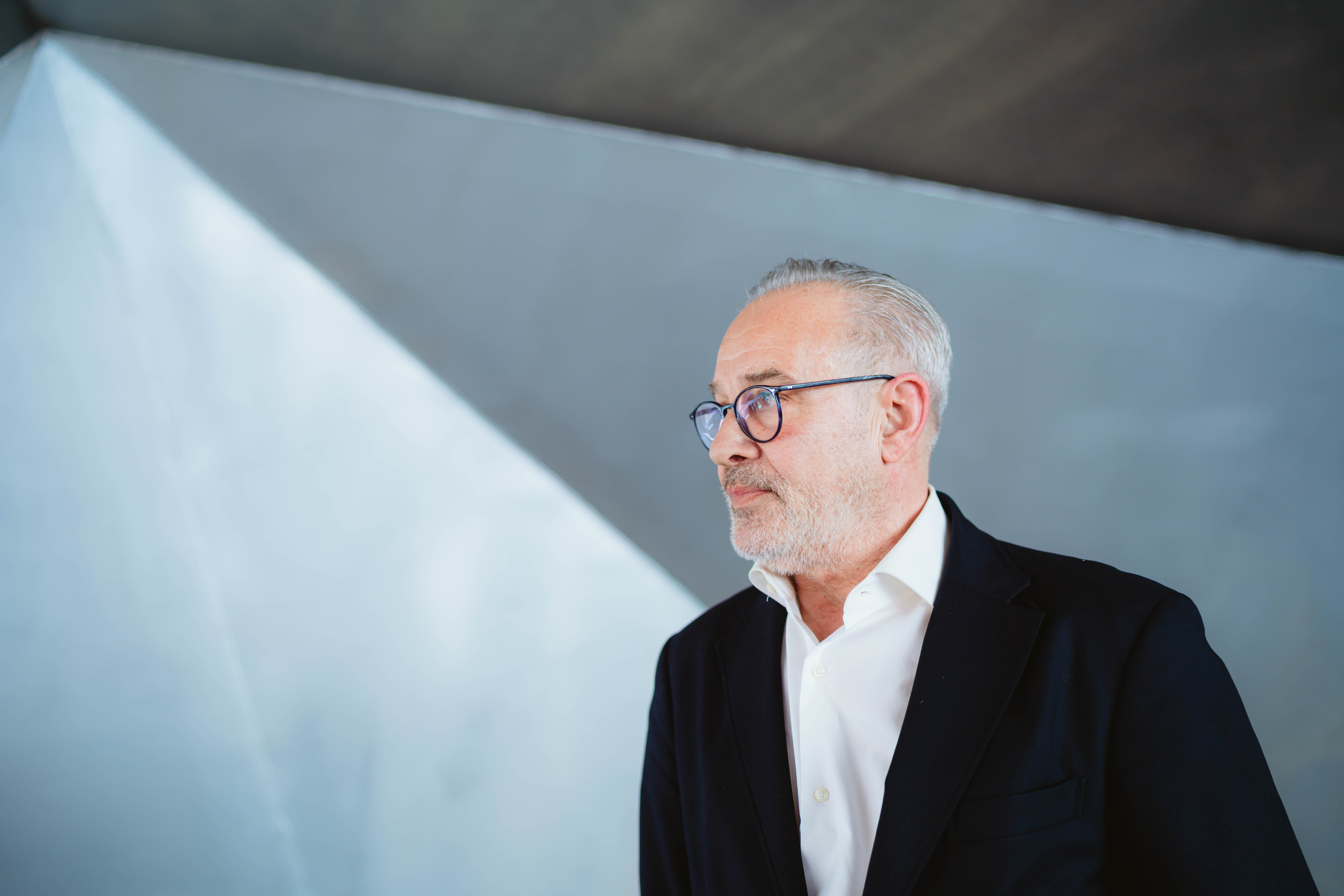
Almost every battle is won when decisions are made because that is when you take that step forward that allows you to come back to life
Julio has been there for a long time. He lives where he wants to live, in a country house in his native Asturias, and how he wants to live with his daughter and his dogs. Free of outdated labels, aware that he cannot please everyone, but "at peace" with himself, convinced of his honesty and, as a believer that he is, aware, he says, that everything he has lived through has a reason for him to be where he is today, to know what he knows and do what he has to do. "I regret nothing, nor would I change anything about what happened to me".
Today he is working so that the Fundación Relife continues growing "without haste", but with "steady pace”, he is finalising a documentary and a film with which to "stir up more young people" and, meanwhile, heads the Circuito Relife to generate "debate" among young people and that they take "to school, high school or university" which, without a doubt, will always be its best shot.
